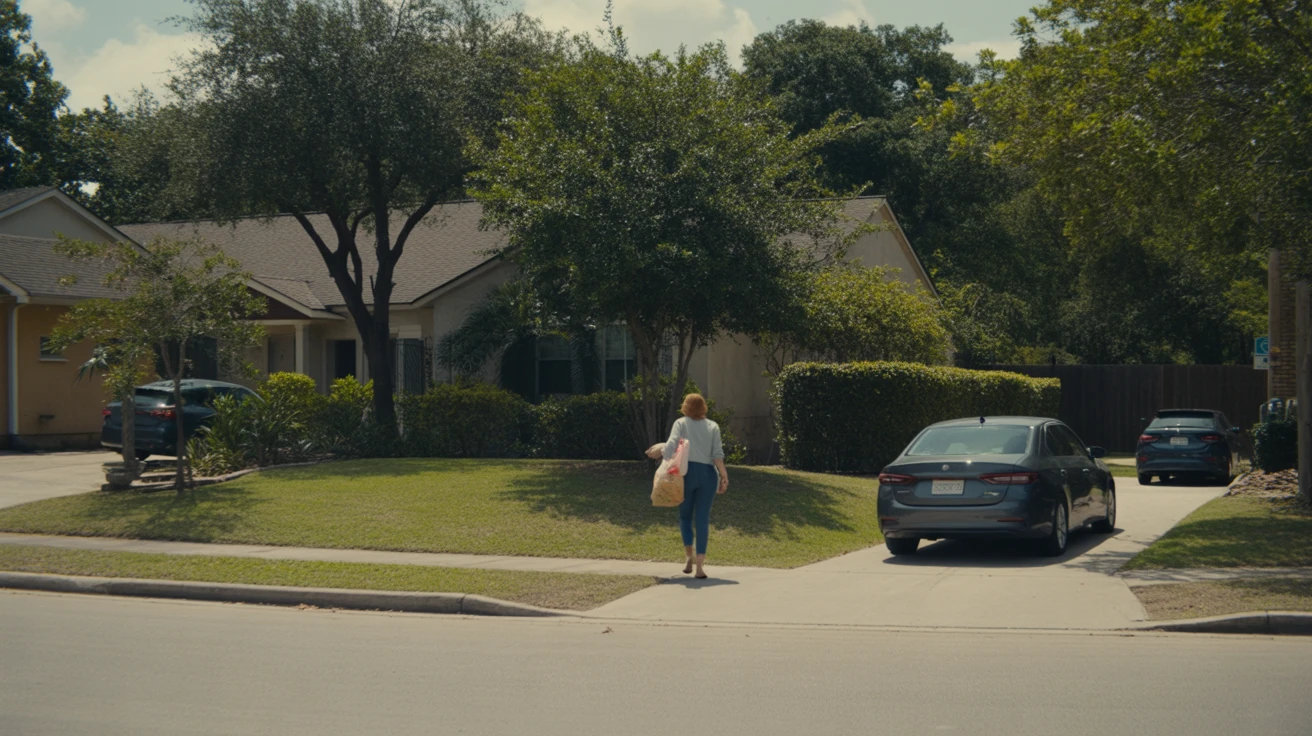
Budgeting Smarter in Cypress
How much does it really cost to live comfortably in Cypress, TX? Whether you’re a new mover or long-time resident, understanding how to allocate your monthly budget in Cypress is key to financial stability. In this Houston suburb, housing and electricity often make up more than 55% of a household’s budget.
Depending on your lifestyle, your monthly budget in Cypress can look very different. A single renter may allocate funds much differently than a family of four with a mortgage. Here are some typical examples of how expenses break down across common scenarios.
What Real Budgets Look Like in Cypress
Let’s explore monthly budget snapshots for three Cypress residents1:
| Expense | Jasmine Single Renter $3,000/mo | Sam & Elena Dual Income Renters $7,000/mo | The Ortiz Family Homeowners, 2 Kids $9,500/mo |
|---|---|---|---|
| Rent/Mortgage | $1,200 | $2,100 | $2,800 |
| Utilities | $180 | $280 | $450 |
| Food | $400 | $900 | $1,200 |
| Transportation | $200 | $500 | $800 |
| HOA/Fees | $50 | $100 | $350 |
| Miscellaneous | $470 | $1,120 | $1,900 |
| Savings | $500 | $2,000 | $2,000 |
1 These estimates reflect common lifestyle costs in Cypress. Individual budgets will vary.
As you can see, housing is the biggest line item across the board, followed by food and miscellaneous expenses. Utilities also eat up a notable chunk, especially for larger homes. How Much You’ll Spend on Groceries in Cypress dives deeper into food budgeting.
Biggest Cost Drivers
What causes the most fluctuation in monthly Cypress budgets? Seasonal utilities are a big one. In Cypress, the cost of electricity can rise substantially in summer due to air conditioning. Larger homes with less efficient cooling systems may see bills spike by $100 or more per month.
Transportation is another variable expense. Commuters who drive into central Houston can easily spend over $300/month just on gas and tolls. Public transit options in Cypress like park-and-ride buses offer savings, but may mean allocating more time to your commute.
For homeowners and some rental communities, monthly HOA or maintenance fees can also fluctuate. If the neighborhood undertakes a big project or has to make substantial repairs, you may see a temporary or permanent increase in your monthly dues.
Tips to Stretch Your Budget Further
Looking to trim expenses or free up more cash for savings? Here are some ways to optimize your monthly spending in Cypress:
- Shop at discount grocery stores like ALDI or Walmart Neighborhood Market for pantry staples
- Take advantage of off-peak electricity billing from providers like Reliant to shave down summer A/C costs
- Install solar screens, blackout curtains, or attic insulation to improve your home’s energy efficiency
- Opt for a public transit pass instead of driving and parking if your job is near a park-and-ride stop downtown
🏆 Pro Tip: Check with your utility providers about rebates for energy-saving upgrades like smart thermostats or low-flow fixtures. These programs can help offset the cost of improvements that lower your bills long-term.
FAQs About Monthly Budgets in Cypress
Can you live in Cypress on $3,000/month?
Yes, but it will likely mean renting a studio or 1BR apartment and keeping discretionary spending fairly low. Expect to budget at least $1,200 for housing and $500 for basic living expenses, leaving around $1,300 for savings, entertainment, and incidentals.
What’s a realistic rent budget for Cypress?
Plan to spend at least $1,000/month for a 1BR apartment or $1,400/month for a 2BR if you want in-unit laundry and covered parking. Cheaper options can be found, but may have fewer amenities. Check out our full guide to Average Rent and Home Prices in Cypress, TX for more details.
What’s a good budget for a $4,000/month income in Cypress?
Aiming for a 30% rent-to-income ratio, look for a place that’s $1,200/month or less. Budget $800 for regular expenses like food, gas, and insurance, and try to allocate at least 15% ($600) to savings. The remaining $1,400 can go to discretionary spending, eating out, hobbies, or paying off debt.
Planning Your Next Step
Feeling inspired to re-assess your monthly budget? Start by writing down your income and tracking your spending for a few weeks. Then see how your percentages align with the examples above. Just remember, budgeting isn’t one-size-fits-all.
The key is striking a balance between covering your needs, planning for the future, and enjoying the life you want to live. And if Cypress ends up feeling too expensive, you can always explore budget breakdowns for other parts of the Houston metro area to compare.
